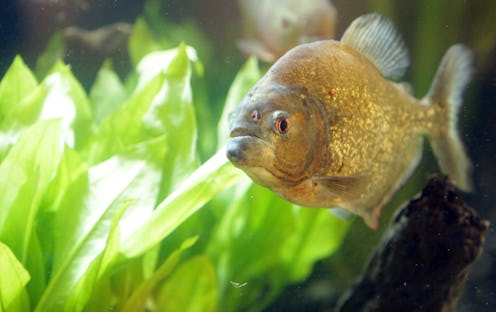News
Climate Change Putting Fish In Danger :(
We already know that ocean acidification is not good for marine life. But a new study shows that for certain rish it could be even worse than we thought. In marine waters with elevated carbon dioxide levels, fish are attracted to the smell of their predators instead of being repelled. In other words, they're swimming directly toward the danger. Which, as you might imagine, doesn't end well for them.
The research, published in Nature Climate Change on Monday and led by Philip Munday from James Cook University in Australia, investigated several species of reef fish living near natural volcanic carbon dioxide seeps in Papua New Guinea. The acidification levels in this area are thought to be comparable to what the rest of the ocean could be like in the next 100 years.
Young fish living in this environment were found to be oblivious to the dangers in their surroundings, and behave more rashly than juveniles of the same species are known to behave in less acidic environments.
The researchers compared the behavior of the fish in this area to those in less acidic areas, and found that fish in the acidic areas spent a large amount of their time in water that was tainted with predator odor. Which is exactly what they are meant to be trying to avoid.
The problem is not with the fish's sense of smell — rather the change in pH levels in the water induces neurological changes in the fish that prevents them from being able to distinguish between water that contains the predator odor and that which doesn't.
The study suggests that even fish who have lived their entire lives in acidic conditions are unable to adapt to their environment. As oceans continue to become more and more acidic — around 30 percent of carbon dioxide released into the atmosphere is absorbed by bodies of water — the outlook for reef fish becomes ever more bleak.
Apart from the obvious fish-tragedy implied, there could also be a significant economic impact. Billions of people around the globe rely on fish as both a food and income source. Yet another brilliant reason why the world needs to be taking carbon dioxide emissions more seriously.
